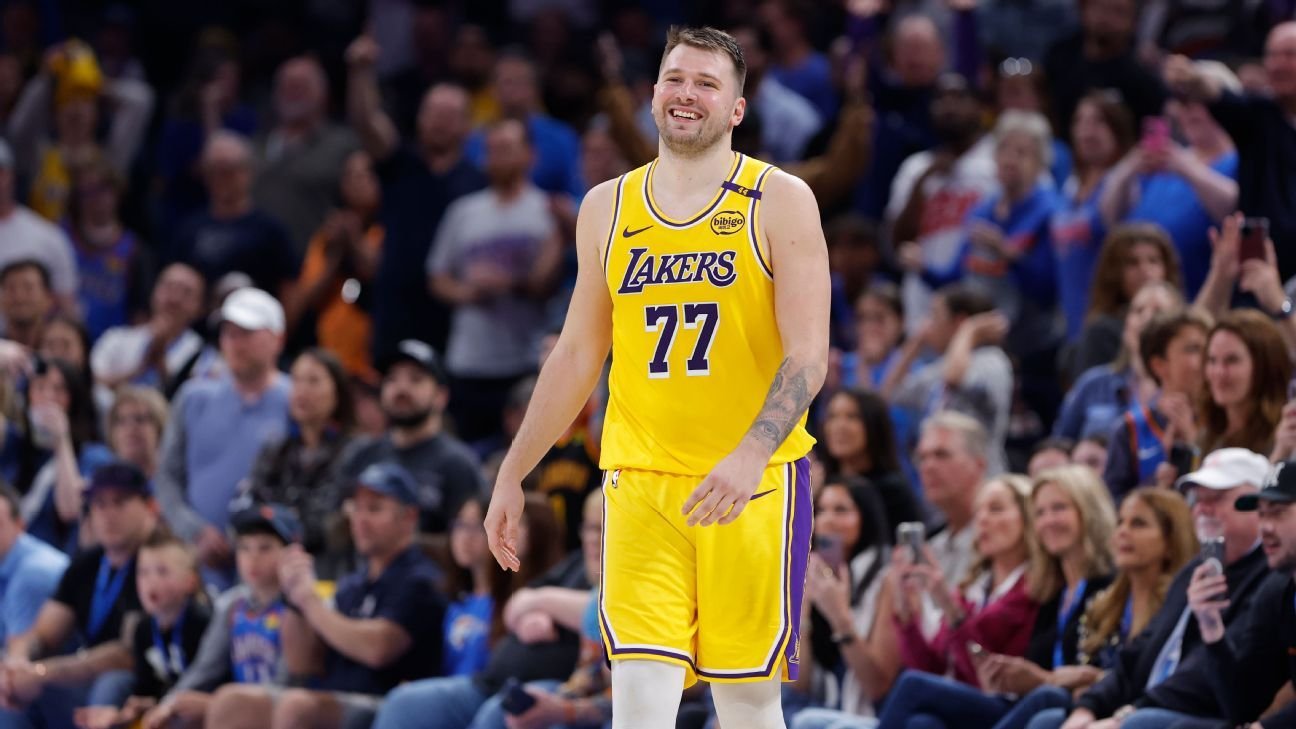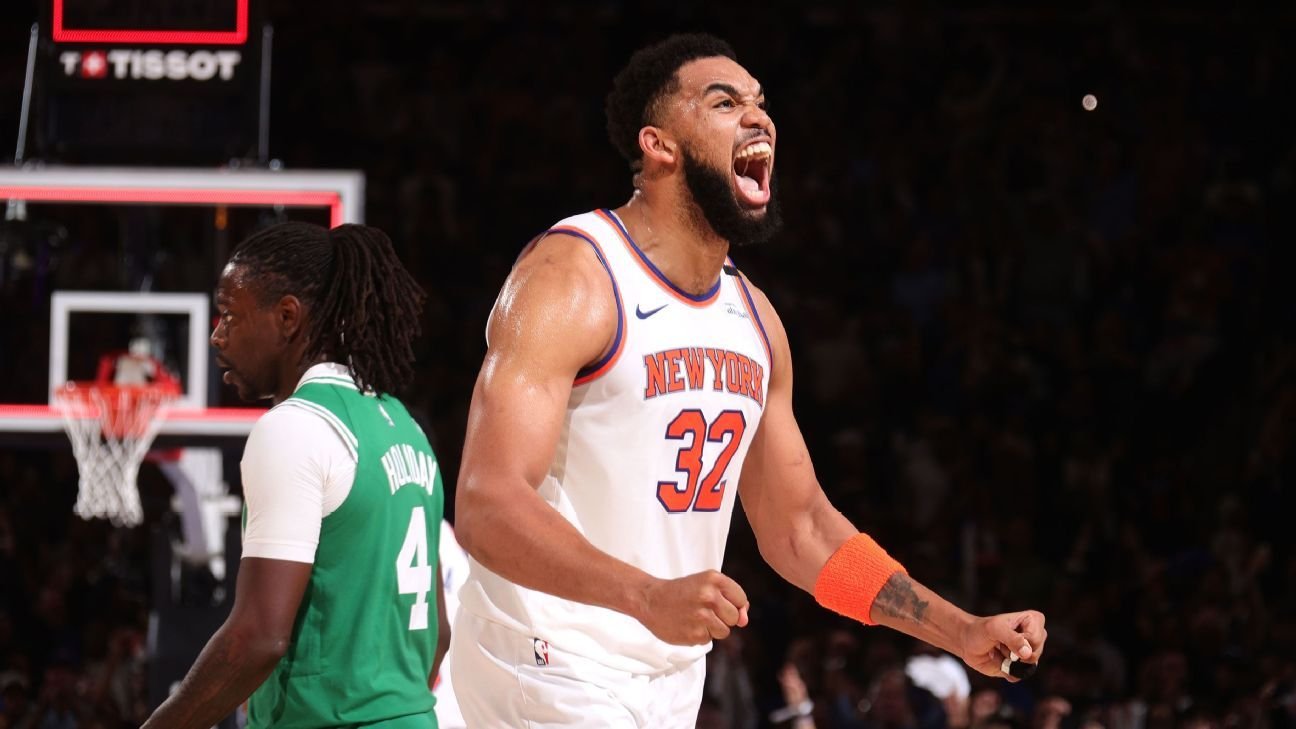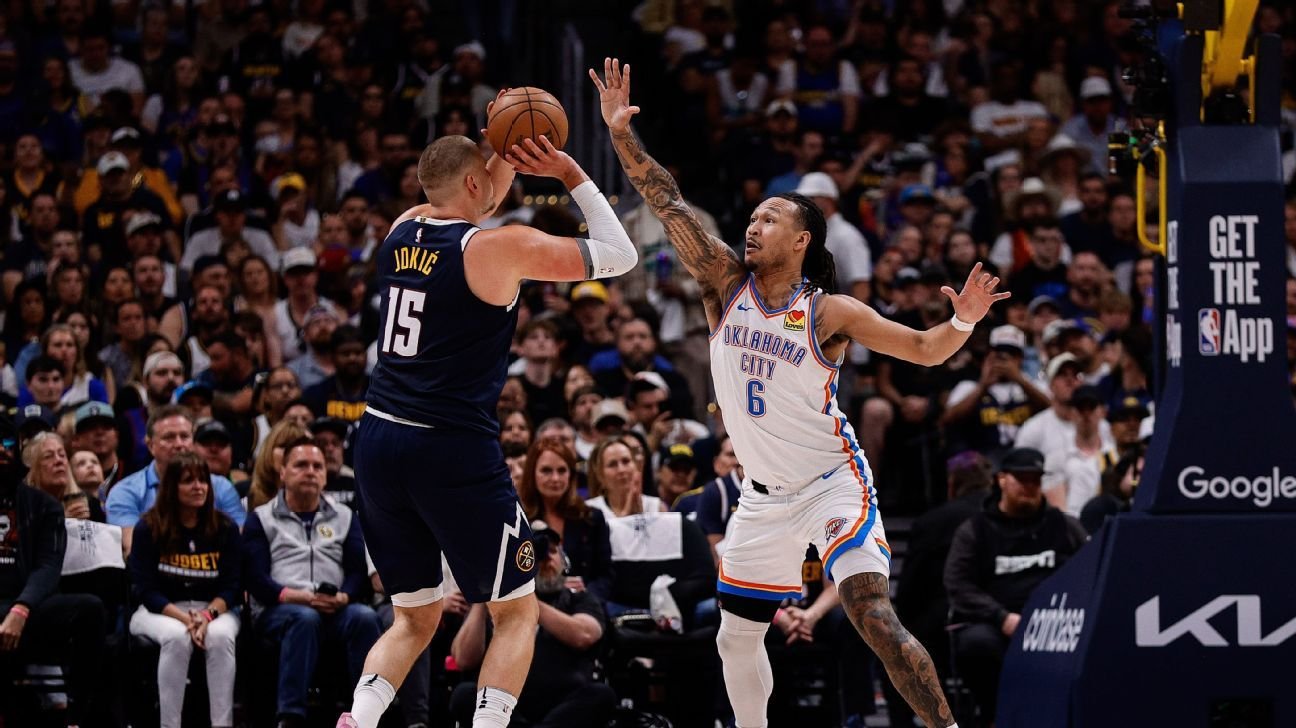
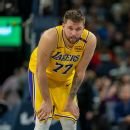
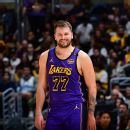
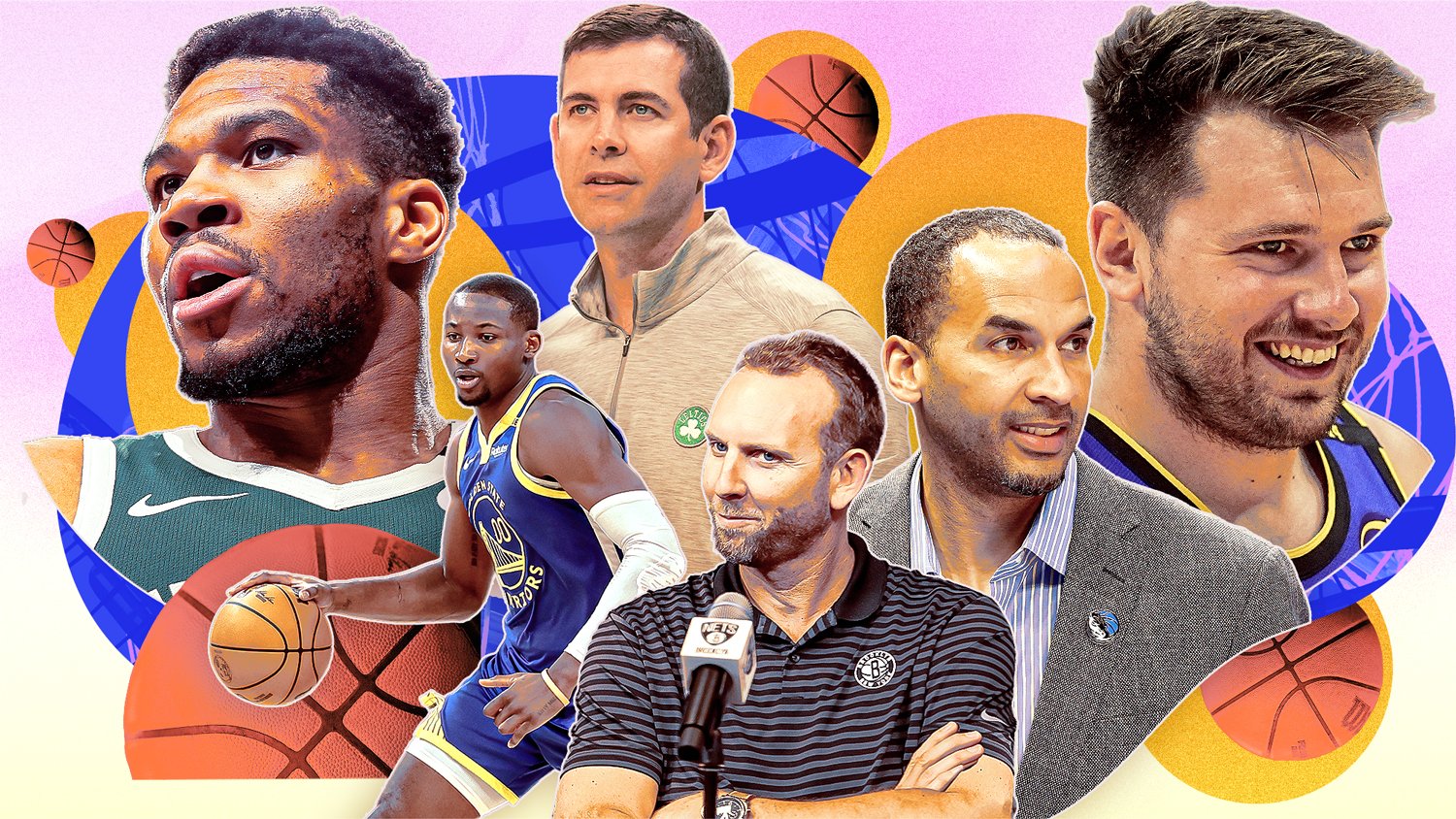
When Luka Doncic announced his arrival in New York City this past Sunday, his mere presence stateside signaled a momentous week ahead. It was the first time since he entered the NBA that the superstar had abandoned his summer break in Europe to return to the U.S. before training camp, a source close to Doncic told ESPN.
The trip was presented as a promotional tour for the Jordan Brand signature athlete. Doncic started off by visiting Yankee Stadium to hang with fellow Jordan pitchman, Aaron Judge, and then headed west: first to MJ’s old stomping grounds in Chicago before finishing in Los Angeles.
What it became was a cross-country runway strut to show off the 26-year-old’s trimmed physique and an announcement that L.A. will be more than just a temporary home after the five-time All-Star’s shocking trade from the Dallas Mavericks to the Lakers on Feb. 1.
Doncic intends to sign a three-year, $165 million contract extension in person with the Lakers on Saturday, the first day the franchise was eligible to offer him one, sources told ESPN’s Shams Charania. The third year will be a player option, sources said.
Three months after Doncic’s first postseason appearance in L.A. was cut short, with the No. 3-seeded Lakers losing to the No. 6-seeded Minnesota Timberwolves in five games, Doncic’s dietary discipline — and bold body transformation captured on the cover of Men’s Health — was a statement by itself. It showed Doncic was heeding the directive he laid out during his last news conference of the season after the first-round exit.
“Everybody’s got to get better,” Doncic said then. “We’re going to have a long summer. And should focus on what we can improve as a team and as individuals. Everybody.”
As it turns out, he was speaking for a group he intends to lead into its next era. Now that Doncic’s decision to stay has addressed the biggest priority for the Lakers’ offseason, here are three lingering questions ahead of Luka’s first full season in L.A.
Why sign for three years instead of four?
The largest contract the Lakers could have offered Doncic was a four-year, $229 million deal, according to ESPN NBA front office insider Bobby Marks. So, after already missing the chance to sign a five-year, $345 million supermax extension had he stayed in Dallas — not to mention the difference between state taxes in California and Texas — why would he leave an additional $64 million in guaranteed money on the table?
By signing a 2-plus-1 extension, Doncic can become an unrestricted free agent in either 2028 or 2029, when he will already have 10 years of service in the league.
Based on Marks’ annual cap projection of 10%, there will be another enormous payday coming for Doncic.
The Lakers will be able to re-do his deal in the summer of 2027 and offer him a four-year, $323 million extension at that point.
On the other hand, if Doncic plays the two guaranteed additional years on his deal and declines his player option for 2028-29, he could sign a five-year extension at that point worth around $418 million in his age-29 season. That potential deal could make him the first player in league history to land an $80 million season salary, taking home nearly $1 million per game: A staggering figure.
The last year of the deal would be approaching nine figures at $95 million — a premium price as the face of a $10 billion franchise.
What are Doncic’s expectations for the upcoming season?
Processing the trade from Dallas took Doncic some time. Based on the way the franchise and fanbase treated him in his early days in the league, he figured he would retire a Maverick after spending his whole career in Dallas, the same way franchise icon Dirk Nowitzki did. And after starting his professional career with Real Madrid as a teenager, he never even considered being traded as a possibility, a source close to Doncic told ESPN. Deals like that rarely, if ever, happen in the Liga ACB.
When the shock subsided, a source familiar with Doncic told ESPN his mindset shifted back to when he was last suiting up for Dallas: Win-now mode.
Doncic might have made a multiyear commitment to the Lakers, but he expects to be in contention every year. Doncic displayed his urgency through his offseason fitness regimen and taking a role in recruiting both Deandre Ayton and Marcus Smart to L.A.
And he has done it by taking a partnership approach. After Lakers president of basketball operations and general manager Rob Pelinka and coach JJ Redick took Doncic and his business manager, Lara Beth Seager, to dinner in May, the 6-foot-6 guard left with a greater understanding of the team’s books. The team left with a better understanding of Doncic’s desires.
“I don’t want to wait,” Doncic told the table, a source familiar with the conversation told ESPN. “I had a taste of the Finals. I am getting back there. So let’s do whatever we can now.”
Pelinka and Redick used the dinner to examine future cap space, the picks they owned, the picks they didn’t own and to discuss how to tackle their future together. Doncic was encouraged to share the archetypal players he felt the roster could use — a pick-and-pop guy, a defensive stopper, a rim protector — so the Lakers could identify realistic players to fit that mold.
How do the Lakers feel?
In a word? “Excited,” a source familiar with the Lakers’ thinking told ESPN.
The organization’s goals are aligned with Doncic’s in the short term — and LeBron James’ as well, for that matter. “This is a team that wants to win championships,” a Lakers source told ESPN. “That hasn’t changed and it won’t change in the future.”
While the team’s aversion to offering free agent forward Dorian Finney-Smith a deal that extended beyond 2027 — leading him to sign with the Houston Rockets — left some around the league with the impression that L.A. was preserving cap space to go after a big name in free agency that summer, a source familiar with the Lakers’ thinking insists that their strategy is motivated by flexibility, not pining for another potential star.
Would multiple-time MVP winners Nikola Jokic or Giannis Antetokounmpo look great in a Lakers uniform? Of course. The real mission, however, is to give the team as much margin to pivot as possible — either fueled by need or opportunity — each season while maintaining championship aspirations.
As one Lakers source put it: “If you don’t have optionality, you get stuck.”
From the day L.A. parted with Anthony Davis, Max Christie and a future first-round pick to acquire Doncic, it was imperative to secure this commitment.
Now that they have done so, the next era of Lakers basketball officially begins.
[ad_2]
